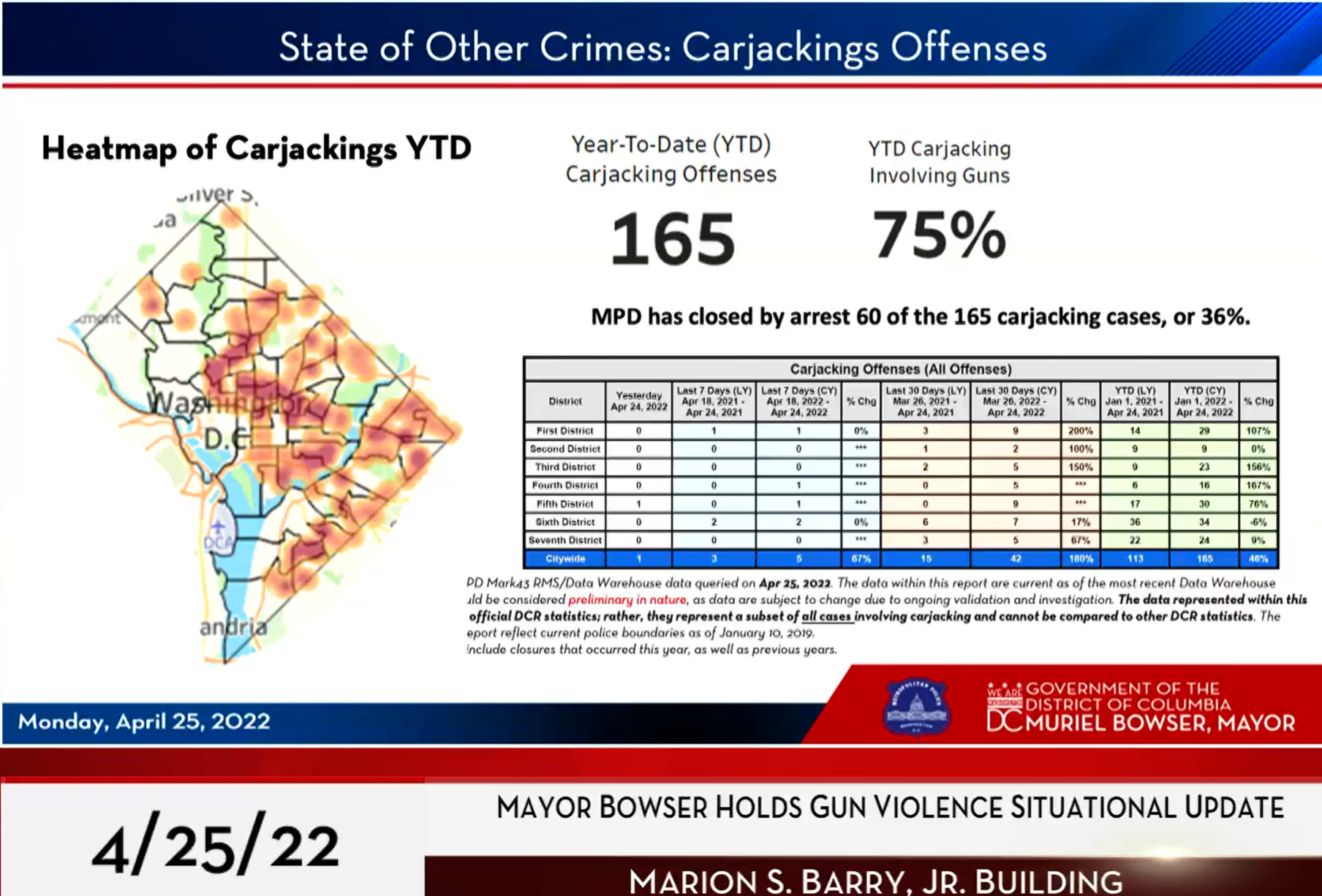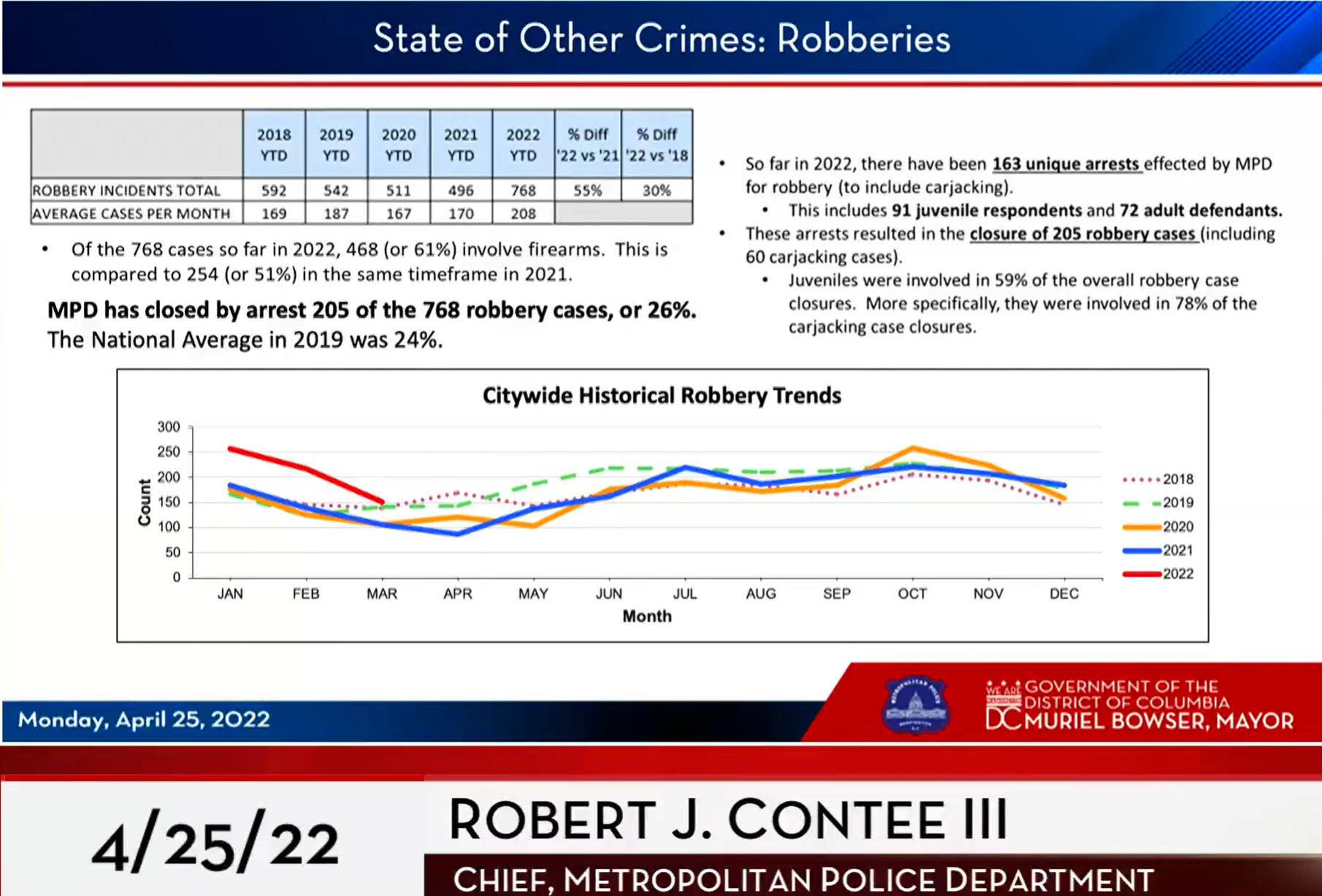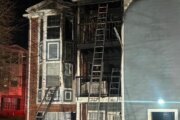After a weekend that saw several people injured in separate shootings across D.C., including a “sniper-type setup” that sent the Van Ness area to shelter in place Friday, the mayor and the police chief unveiled a partnership with local and federal law enforcement called the Violent Crime Impact Team.
The partners include the Bureau of Alcohol, Tobacco, Firearms and Explosives; the Drug Enforcement Agency; the U.S. Marshals Service; and the Secret Service. The aim is to “reduce violent crime by using more intelligence-driven operations and enhance our investigative abilities through federal agency partnerships,” a news release from the mayor’s office said.
During a Monday news conference, Mayor Muriel Bowser said that the partnership was put together based on what is being experienced by the community and comes at a time when D.C. police resources are more scarce than ever before.
“We cannot allow people to terrorize our communities with guns,” Bowser said. “Our message is clear — we will continue to offer people in our city a better path forward, but if people choose to engage in violence, then they will be held accountable.”
D.C. police Chief Robert Contee referred to the effectiveness of these kinds of partnerships, pointing to recent progress made because of collaboration with other law enforcement agencies, including arrests in the shooting of 6-year-old Nyiah Courtney, the fentanyl overdoses and the shootings of men experiencing homelessness.
Contee pointed to the firearms displayed next to him, and said that some 40 illegal firearms were seized over the weekend, including those that were found with the suspect during the shooting in Van Ness on Friday.
“That should make every person cringe,” Contee said.
At least two other shootings happened on Friday in the District, including one on Blair Road that injured a man in a wheelchair. Police are looking for three people who were seen running from the scene.
Contee condemned the act, saying that people who would hurt someone in a wheelchair “deserve to be in jail because they have demonstrated that they cannot function in community,” adding that people are scared.
“And when people are scared, we have to take a different approach, a different look, in terms of how we’re doing the things that we do,” Contee said.
10 shooting offenses in DC over weekend
On Friday and Saturday, D.C. police reported a total of 10 shootings and 15 victims struck. Police released a photo of a suspect in a shooting that injured two men and a woman on Friday in the 600 block of Kennedy Street Northwest.
MPD seeks a suspect in reference to an Assault with a Dangerous Weapon (Gun) offense that occurred on Friday, April 22, 2022, in the 600 block of Kennedy Street, Northwest.
Have info? Call 202-727-9099 or text 50411
Release: https://t.co/LhIoFEYuMm pic.twitter.com/Ev0EMyZmIO
— DC Police Department (@DCPoliceDept) April 23, 2022
Contee said that he spent time on Kennedy Street with his family on Saturday and checked in with some businesses and residents in the area.
“Some of the things that I heard were very disturbing to me when it comes to just the reckless regard that some people in the community have for law-abiding citizens,” Contee said.
Violent crime has decreased overall in D.C. during the last eight years, but gun crimes continue to rise across all categories of violent crime, which Contee said is an area of concern.

“But I can tell you when you talk about the firearms that are on the street, when you talk about what we’re seeing, that number is not letting up. We’re already, this year, 50% over the firearms that we’ve recovered last year already. And we’re only in the month of April. We’re already 50%, or we’re almost at 1,000 firearms recovered this year, so far,” Contee said.

Robberies, which trended upward at the beginning of the year, are now going down a little.

As of Monday, there have been 53 homicides in D.C.
“When we talk about violence, sometimes, we don’t spend a lot of time talking about the victims of violence. Those are people, unfortunately, who may be on the other end of a gun,” Contee said.
“But there are also people who live in communities, where they’re fearful, or where they’ve witnessed crime, where they hear gunshots and where they cannot enjoy the peace and tranquility of their own homes or their own lives.”








